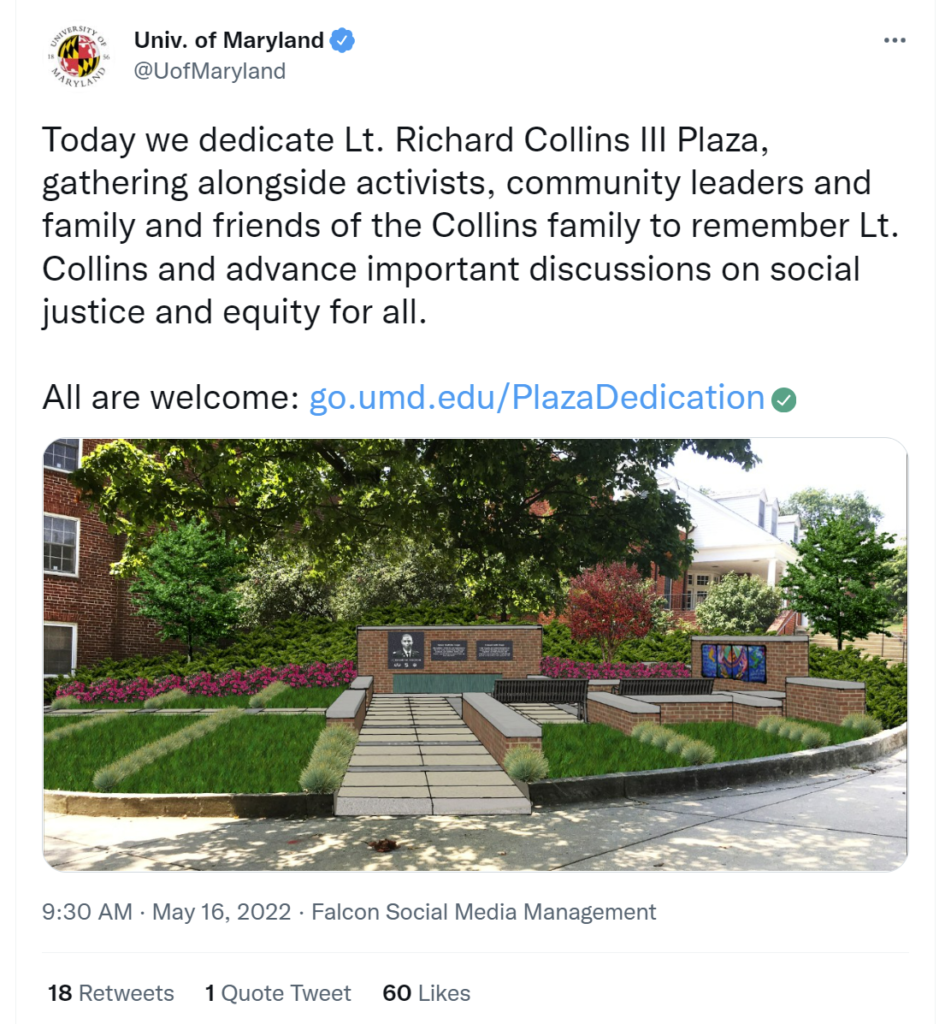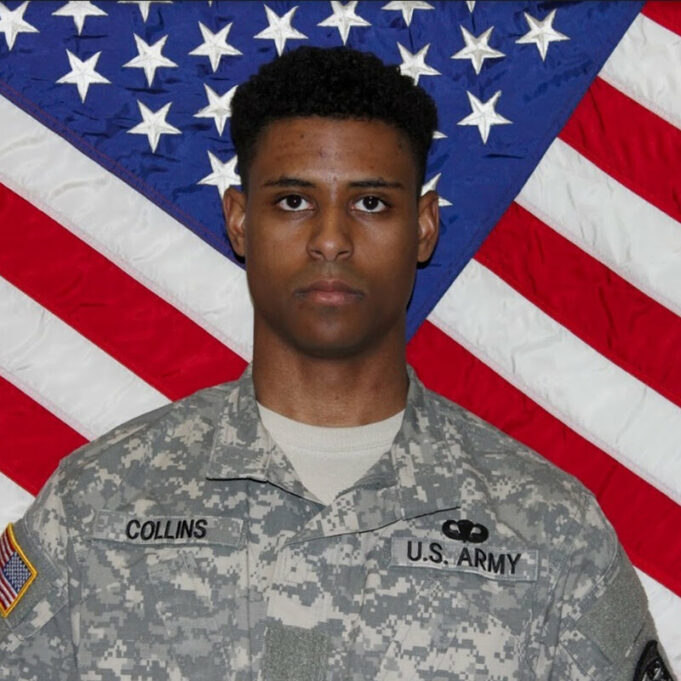WASHINGTON—Black students at the University of Maryland saw demand number eight met from their list of 25 total demands to address racism with the recent dedication of 1st Lt. Richard Collins III Plaza. It overlooks the bus stop where Lt. Collins III, a student at Bowie State University, was killed in what many thought was a racist attack.
The plaza features a seating area, three plaques featuring Lt. Collins III and a mural showing messages of unity.
“[The plaza is] designed to help all of us remember and reflect. Reflect not only on what happened here in College Park, but to also reflect on Buffalo, Charlottesville, Charleston, Atlanta, Jasper, Texas, Laramie, Wyoming …,” said Rashawn Ray, co-lead of the BSU-UMD Social Justice Alliance and sociology professor, in his opening remarks at the plaza dedication.
The 25 demands resulted from growing frustration with the university after Lt. Collins III was fatally stabbed by University of Maryland student Sean Urbanski on campus in 2019. That incident followed students reporting White nationalist fliers displayed around campus, and a noose found at a fraternity house.
Prince George’s County State’s Attorney Aisha Braveboy spoke at the dedication on her and Lt. Collins III’s parents’ efforts to pass a law that changed hate crime statutes in Maryland. In March 2020, the Maryland State Legislature passed a bill named after Lt. Collins III that allows prosecutors to pursue hate crime charges for acts motivated “in part” by hate.

Sean Urbanski was charged with a hate crime after authorities learned he belonged to “Alt-Reich: Nation,” a White-supremacist Facebook group and had racist memes on his phone. However, that was not enough to persuade a judge to try him with a hate crime. Mr. Urbanski was sentenced to life in prison.
The plaza is a checked box on the students’ list of demands, but there are 24 more that must be addressed. Other demands include recognizing that University of Maryland is built on land stolen from the Piscataway people and the immediate removal of hate speech found on campus property. The plaza was dedicated May 16.
In April, Black student leaders organized a town hall to assess University of Maryland’s response to their demands. The university’s website, which tracks its progress on the “Critical Issues and Student Recommendations,” marks 19 as completed or in sustained commitment and the other six in progress.
Rashidah Thompson, a junior marketing major from Philadelphia, told The Final Call: “The university makes what they are doing look good, but for the students, it’s a different story. The microaggressions haven’t stopped. The need for more Black faculty, staff, teaching assistants, administrators and advisers continues. It was our number one demand,” she said.
Ms. Thompson attended the town hall meeting and was able to connect with university alum Saba Tshibaka who co-founded Black Terps Matter in 2020, a grassroots, anti-racist coalition that co-sponsored the town hall. They work year-round to end racism on campus with protests, teach-ins and resources.
Ms. Tshibaka discussed demand 15, which requires the university to “Divest from the Maryland Correctional Enterprises, as well as businesses and companies invested in it, and the prison industrial complex.” She explained that demand should not be marked as “complete” or “sustained commitment,” because the university has not fully divested from these institutions.
“That means that we need to fix that from a … ‘sustained commitment’ to ‘in progress,’ ” Ms. Tshibaka said. “Because if you really get down to the nitty-gritty … we aren’t actually ready to divest.”
Demand 17 calls for a racial incident hotline through the Counseling Center. After Lt. Collins III’s death, students posted incidents on social media with the hashtag #FearTheTurtle.
Sophomore biology major Mitch Washington from Richmond, Va., told The Final Call: “When things happen, you wonder if you heard people correctly. White students make what they think are ‘harmless racist’ jokes. When I don’t laugh, they ask ‘what’s wrong with you?’ ”













